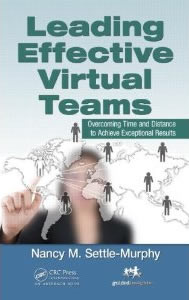Sarah slams down her tray and sighs as she settles herself across the table from Jerome, her fellow manager, to gulp down a 10-minute lunch, a rare luxury these days.
“I am just so fed up with some of our newest team members, I could scream! If they ask me for feedback one more time…”
“I hear you, Sarah. I have 10 direct reports, and it feels like the two GenZers on the team are taking up 75% of my time. They’re always asking for ‘guidance,’ and yet they accuse me of micromanaging. They question the way we do things as if I have the power to change them and keep spouting off ideas that are impossible to implement. It’s a never-ending cycle of frustration.”
Sarah puts down her fork, edging closer to Jerome, lowering her voice. “One of them insisted on a ‘career development plan’ the other day, even though no one else has one. And honestly, they job-hop so much, I’m not sure we should invest much in their learning and development when they’re probably gonna leave. They seem so entitled!”
Jerome pushes his tray aside and holds both hands up as if to surrender. “And what really gets me is the way they’re always trying to get us to embrace new technology I’m not even sure we need. They claim that email is ‘old school,’ which might be why they take forever to respond, and they almost never pick up the phone. And yet, during team meetings all they seem to do is look at their phones. It’s as if we’re speaking completely different languages!”
As they pick up their trays to leave, Sarah adds: “And here’s the irony. They claim they’re so stressed and burnt out that they need extended vacations and more PTO. I’d love to see them walk a mile or two in our shoes. They’d know what real stress is.”
Intergenerational challenges are nothing new. Multiple generations have worked side by side for decades now. But there’s never been a generation like GenZ (those born from 1997 – 2012), with a combination of experiences, perspectives, challenges, and needs that make these dynamics uniquely challenging.
Growing up with smartphones has caused this generation to develop depression and anxiety disorders in much higher numbers than older generations, along with the fallout from 9/11, economic turmoil, school shootings, the climate crisis, political polarization, COVID, and a far-too-long list of other stressors.
It’s true that quit rates are high, engagement scores are especially low and reports of burnout are through the roof for GenZ workers. Sadly, there are too many managers like Sarah and Jerome who find it easier to complain about their GenZ workers than to discover the real reasons for disengagement. Since Gen Z will comprise about one-third of our workforce by 2032, it’s time we stop complaining and start listening.
Laurie Butson, Founder, Cleared to Flourish LLC, joined me in writing this edition, where we explore how and why GenZ is unique and why so many managers struggle assimilate them into their teams, and offer practical steps managers and organizations can take to bridge intergenerational differences in a way that benefits everyone.
✳️ New! Join our Intergenerational Insights Roundtable on Friday, May 10, from 10 – 11:15 AM EDT. Click here to register or send me a direct email. ✳️
What do GenZ workers especially need and want from their employers?
● Authentic connections, feeling cared for and included
● Guidance, clarity, coaching and focused attention from their managers
● Ability to make informed decisions on their own
● Easy, quick access to information
● Frequent feedback
● Learning and growth opportunities, with clear career paths
● Flexibility to work from anywhere, at any time
● An organization whose mission is aligned with their own values
● A clear sense of how they can contribute by doing meaningful work
● Honesty, transparency and follow-through from their leaders
● Someone who cares about their well-being, including their mental health
Why do leaders struggle to make meaningful connections with GenZ?
● Experienced managers often assume that the same leadership skills can be used for all generations; many don’t have the curiosity or willingness to understand and accommodate today’s younger generations
● Many younger workers view their managers with a curious and questioning lens about decisions, processes, communications methods, etc., which often puts their managers on the defensive
● Managers may have a cynical perception about their younger workers, frequently viewing them as entitled, lazy, demanding, prone to job-hopping, etc., often based on second-hand anecdotes or news articles
● Today’s managers are overwhelmed with an unprecedented confluence of challenges that make it hard to give younger workers the time, guidance, attention and autonomy they’re craving
What can employers/managers do to bridge generational differences?
For a more complete list of tips and ideas, click on this downloadable PDF file.
Relationship, trust-building, coaching
● Make 1:1 sessions sacrosanct, and start conversations with a personal check-in. Show compassion and demonstrate caring with every conversation. Pose relevant, insightful open-ended questions to get a sense where they may need encouragement, guidance or support. Listen attentively and take notes. Download this PDF file of 31 Key Coaching Questions for GenZ employees.
● Provide feedback regularly. Be specific about what you noticed and avoid the inclination to give someone your advice on “the right way” to do something. Rather than just saying, “Hey, you did this wrong,” say, “Let’s talk about your thought process while you did X and where you might have gone wrong, and what might work better next time.” Include plenty of positive affirmations, too.
● Find ways to enable and encourage autonomy. For example, be clear which decisions they can make on their own, as well as related criteria. Discuss what kind of risks are acceptable for them to take, and under what conditions.
● Show how their role and the work they do contribute to the mission/purpose of the organization. Talk about how and why their contributions are important and the impact they are having.
● Invite honest conversations about mental health, well-being, and burnout. Make yourself vulnerable by revealing some of your stressors, if you’re comfortable sharing. Ask what support they need from you, the organization, their teammates, or someone else.
Learning and growth opportunities, career development
● Discuss their desired career trajectory and find ways to help get them there. Research and share career and promotional opportunities during your 1:1s. Ask them to do the same so you can collaborate on a plan of action.
● Together, explore opportunities for learning, including formal training sessions, job rotation, shadowing, online training, seminars and conferences and informal learning opportunities.
● Offer projects that may represent a stretch, giving them an opportunity for visibility, making connections and learning new skills. For example, you might ask them to present to senior leaders or to devise a new marketing strategy.
Assimilation into team, department, function
● Establish a buddy system, pairing your GenZ employees with someone who can offer support, knowledge and understanding. Make sure both parties understand their respective roles.
● Create intergenerational discussion groups where people can learn from each other in a safe environment. Example: What assumptions do you have about my generation? What should I know about yours? Here’s what I want you to know about me. How can I support you? Here’s how I can support you.
● Create a cohort of managers leading GenZ employees to share experiences, discuss what’s working (and what’s not), identify learning opportunities, solve common issues, provide mutual support and more.
Programs, Policies, Activities
● Advocate the need to revisit your organization’s policies around vacation time, PTO, mental health breaks, and other policies which, if revised, would help you organization attract and retain younger employees.
● Make mentorship programs available to GenZ employees who want them. Mentors may come from anywhere in the organization. Consider reverse mentoring, where younger gens are paired with older ones.
● Set up a program where GenZ employees can have lunch/breakfast with a senior executive; make sure that people working remotely can participate, too.
Now let’s fast-forward to another lunchtime conversation between Sarah and Jerome, right on the heels of a few focus groups and 1:1 interviews they’ve run with dozens of GenZ employees.
Jerome begins. “I had a great conversation with one of my folks in our last 1:1. We talked a lot about their career aspirations and how I can support them. I offered to line up some people to interview to learn more about the work of other groups. They were more excited than I’ve seen them in a long time.”
“Well, I asked my team why so many say they’re feeling stressed. Turns out it was the fact that I send off-hours emails, work super-long hours and never seem to take vacations. So we agreed on norms about work hours and emails. In fact, I just booked my Greece vacation!” Sarah smiles as she holds up her phone to show Jerome the ticket confirmation.
“You know, I used to be impatient when they asked questions or pointed out problems with the way we do things. I’ve learned to appreciate their wisdom,” explains Jerome, tapping the side of his head. “We were doing so many things inefficiently, and we’ve come up with some really helpful changes. And when we can’t easily make changes, I take the time to explain why.”
“It sounds like you’ve established some important norms,” says Sarah. “We’ve created some team norms around team communication, and now we’re getting things done faster and we’ve eliminated a lot of waste. My GenZ folks convinced me to quit my addiction to email and move toward Slack and Teams for most of our communications.”
“Yeah, I’d say we’ve really started to build some nice relationships,” Jerome said, smiling broadly as he stood to leave. “We’ve all shared how and why we like to communicate the way we do, and how we like to be communicated to. I’ve gotta say that I am learning a ton from these GenZ folks, including a whole new vocabulary I never knew existed. I think they also might be learning from me. At least I hope so!”
Working across generations sometimes feels as though we’re working in parallel universes. But it doesn’t have to be this way. By openly acknowledging and appreciating our respective differences, strengths, and diverse perspectives, being part of an intergenerational team can a great learning and growth experience for people of all generations.
Links
- Join our Intergenerational Insights Roundtable on Friday, May 10, from 10 – 11:15 AM EDT. Click here to register or send me a direct email. We’ll send you a confirmation email with links as soon we see your request.
- 31 Key Coaching Questions for Younger Gens – downloadable PDF file
- More tips and ideas for making intergenerational teams work – downloadable PDF file




